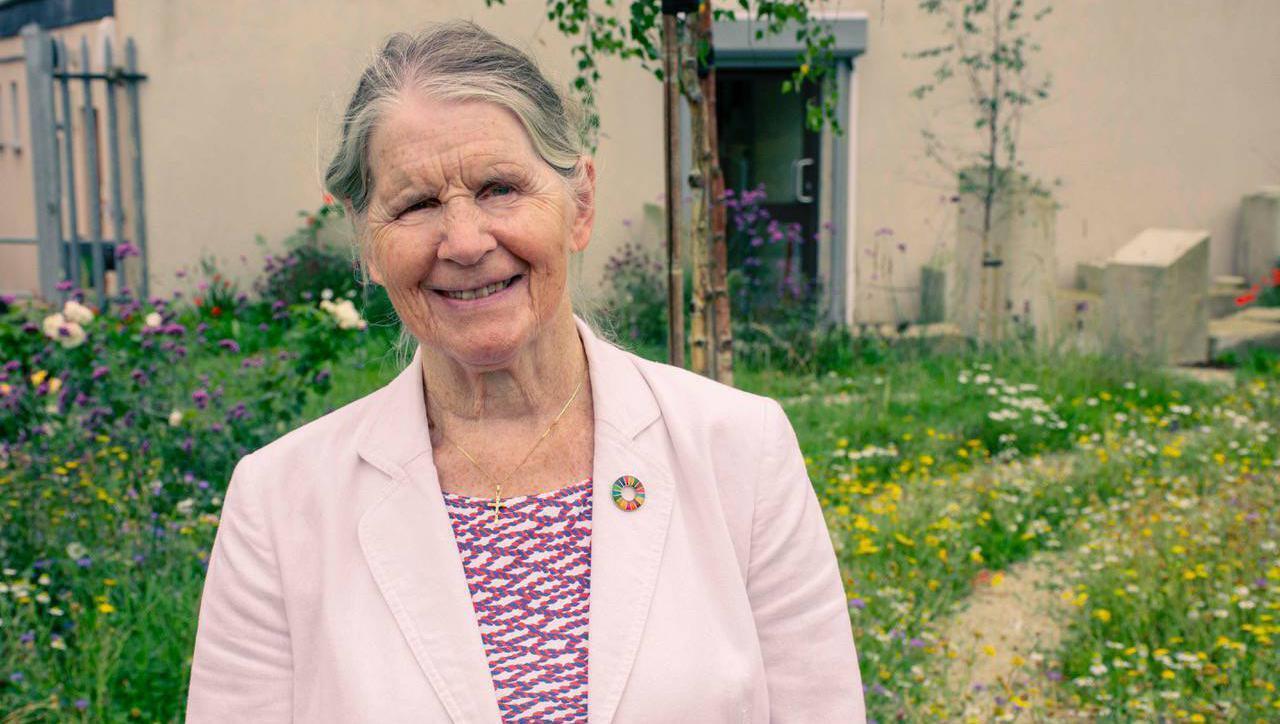Politics
Celebrating Sr Stan: A Legacy of Social Justice and Faith

Tributes have poured in for Sr Stanislaus Kennedy, a prominent social justice advocate who dedicated her life to transforming communities and uplifting those in need. Known for her unwavering commitment and pioneering initiatives, Sr Stan, as she was affectionately known, established numerous organizations that improved the lives of thousands across Ireland. Despite facing significant opposition, including criticism from former taoiseach Charlie Haughey, she remained resolute in her mission.
Reflecting on her legacy raises a compelling question: what if this remarkable woman had been recognized within the hierarchy of her Church? While she excelled as a leader in the secular world, Sr Stan remained a Sister in the Catholic Church, her contributions overshadowed by institutional limitations. Had she been appointed a bishop, her influence might have revitalized the Church’s original values, fostering trust that has eroded in recent decades.
In the mid-1960s, Sr Stan’s early work was inspired by the bishop of Ossory, Peter Birch. She joined him in Kilkenny to launch a groundbreaking initiative, Kilkenny Social Services, with the aim of addressing poverty and homelessness. Her advocacy often came at a cost; when she wrote a paper criticizing the Church’s allocation of resources, she faced backlash, including a reprimand from Rome. Yet, she continued to speak out against mandatory celibacy for clergy and championed equality for women within the Church.
Her significant impact on lay society is undeniable. In 1985, she founded Focus Point, which later became Focus Ireland, to support the homeless. She established the Sanctuary in Dublin in 1998, a center for meditation and reflection. In 2001, she was instrumental in the creation of the Immigrant Council of Ireland and the Young Social Innovators program, among countless other initiatives. These efforts earned her widespread recognition, yet the Church’s structure largely remained unchanged, limiting the roles of women.
While acknowledging her achievements, it is vital to consider the broader context in which she operated. Despite the accolades, change within the Church regarding women’s roles proved elusive. Sr Stan’s commitment to justice often encountered institutional resistance, which she described as a form of intransigence. The Catholic Church’s reluctance to address past injustices, particularly regarding abuse cases, continues to affect its credibility.
Controversy also surrounded Sr Stan, particularly following the Ryan Report, which alleged she was aware of abuse at St Joseph’s Industrial School. She vehemently denied these claims, expressing her pain over the misrepresentation of her work and the suffering of the children involved.
The legacy of Sr Stan is deeply intertwined with the founding principles of her religious order, established in 1815 by Mary Aikenhead. At a time when women in religious orders were typically confined to convents, Aikenhead and her sisters ventured into communities to provide care for the sick and poor. Their groundbreaking approach laid the foundation for a more engaged and compassionate Church.
As Sr Stan passed away at St Francis Hospice in Blanchardstown, her contributions to social justice and healthcare were remembered fondly. Her commitment to serving those facing terminal illness reflected a deep compassion that echoes the teachings of her mentor, Mary Aikenhead, who founded St Vincent’s Hospital in 1834 to ensure that the impoverished received equal medical care.
The contributions of Sr Stan and her predecessors raise important questions about the role of women in the Catholic Church. Had they been afforded more influence within the Church’s hierarchy, it is plausible that many of the challenges faced by the institution today could have been addressed more effectively.
As we reflect on the life of Sr Stan, it is essential to recognize not only her accomplishments but also the barriers she faced. Her story serves as a reminder of the potential impact that strong leadership, rooted in faith and social justice, can have in transforming communities and restoring trust in institutions.
-

 Top Stories2 months ago
Top Stories2 months agoTributes Surge for 9-Year-Old Leon Briody After Cancer Battle
-

 Entertainment4 months ago
Entertainment4 months agoAimee Osbourne Joins Family for Emotional Tribute to Ozzy
-

 Politics4 months ago
Politics4 months agoDanny Healy-Rae Considers Complaint After Altercation with Garda
-

 Top Stories3 months ago
Top Stories3 months agoIreland Enjoys Summer Heat as Hurricane Erin Approaches Atlantic
-

 World4 months ago
World4 months agoHawaii Commemorates 80 Years Since Hiroshima Bombing with Ceremony
-

 Top Stories2 months ago
Top Stories2 months agoNewcastle West Woman Patricia Foley Found Safe After Urgent Search
-

 Top Stories4 months ago
Top Stories4 months agoFianna Fáil TDs Urgently Consider Maire Geoghegan-Quinn for Presidency
-

 World4 months ago
World4 months agoGaza Aid Distribution Tragedy: 20 Killed Amid Ongoing Violence
-

 World4 months ago
World4 months agoCouple Convicted of Murdering Two-Year-Old Grandson in Wales
-

 World4 months ago
World4 months agoAristocrat Constance Marten and Partner Convicted of Infant Murder
-

 Top Stories3 months ago
Top Stories3 months agoClimbing Errigal: A Must-Do Summer Adventure in Donegal
-

 Top Stories3 months ago
Top Stories3 months agoHike Donegal’s Errigal Mountain NOW for Unforgettable Summer Views









